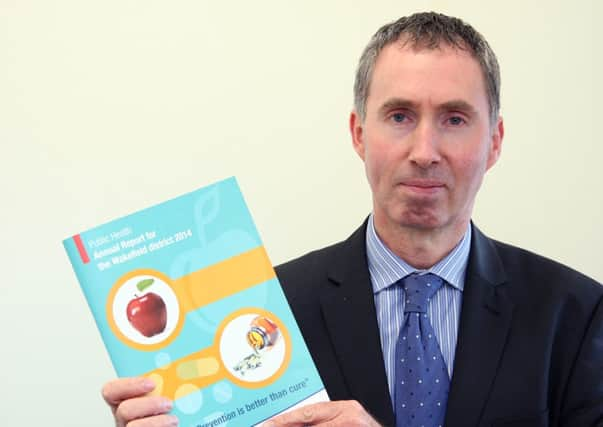Action urged on smoking


More than one in five women in Wakefield district smoke during pregnancy – almost twice the national average -–according to the district’s annual public health report.
The percentage of mums-to-be smoking at the time of delivery was 22.8 per cent last year, compared to 12.7 per cent nationally.
Advertisement
Hide AdAdvertisement
Hide AdThe report by Dr Andrew Furber, Wakefield’s director of public health, shows that smoking among all adults was also above average at 24.8 per cent, compared to the UK-wide 19.5 per cent.
Dr Furber said smoking was the district’s biggest cause of preventable deaths.
He said: “We have a really effective stop smoking service. People are four times as likely to be successful than if they try to quit by themselves, but not enough people are aware of that and are using the service.
“In general people have to quit about eight times before they are finally successful, it is really addictive stuff nicotine.
Advertisement
Hide AdAdvertisement
Hide Ad“Smoking is responsible for around 600 deaths a year in the district.”
The report found that 22.7 per cent of children aged four and five and 34 per cent of kids aged 10 and 11 were classed as overweight or obese.
One in five children were living in poverty and 5.3 per cent of 16-18-year-olds were not in work, education or training.
Wakefield also had higher rates of injuries requiring emergency hosptial admission among nought-14 year olds and 15-24-year-olds.
Advertisement
Hide AdAdvertisement
Hide AdThe report said the injuries could be linked to sub-standard housing.
It said: “Indequate or poorly designed housing can have a negative impact on health.”
“Preventable injuries and a number of health conditions call all bel inked to inadequate housing.”
The report said 9.3 per cent of Wakefield households were classed as being in fuel poverty, compared to 10.4 per cent nationally.